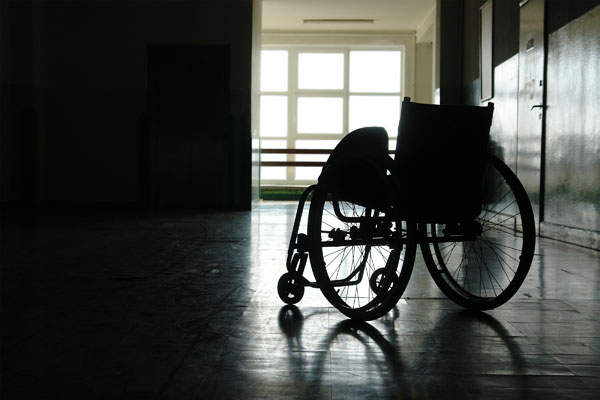A Good Death – The Patient Gets to Decide
August 6, 2009 by Viki Kind
Filed under For Healthcare Professionals

A good death is what the patient tells us it should be. No one can define what would make a good death for another person. We have to ask.
There is a famous bioethics case of a lady who needed to have her leg amputated. She didn’t want to have her leg cut off even though it meant she would die. The doctor argued with her again and again. He would ask, “Don’t you want to be alive to see your grandkids grow up? Don’t you want to spend time with them?” Finally the woman said to the doctor, “I hate my grandkids.” He was shocked. But she went on to explain that the only thing that brought her joy was working in her garden. And if her leg was cut off, then she couldn’t do that anymore. The doctor had thought that what would be valuable for him would be valuable for her. He was mistaken.
We have to ask the patient what they would want and then respect their answers. We have to respect the person. It is their life and their death.
I know it is difficult to accept when people want things we don’t understand. For instance, for some people suffering has meaning. If I understand this, I can understand when the patient doesn’t want to take their pain pills. Or if they want to trade a little bit of pain control for increased consciousness, then I will understand if the patient will only take a little of their pain meds. It is their death. We need to listen to them.
When I work as a hospice volunteer, I have lots of ideas for things people might want to do to create a legacy for their family but that is only if the person wants to. But I don’t assume that what other people want is what I would want. I ask. If someone wants to record their life history on an audio or a video tape, I will help them. Or perhaps they will want to write love letters for their family to open after they are gone. And some people want to write an “ethical will” outlining what values and beliefs they would like to pass on. Or if they would rather avoid thinking about dying, then I honor that. It is their decision to make. They get to choose what makes a good death for them, so I listen.
Have a kind and respectful day.
A Good Death – You Tell Me and I Will Help You Get It
August 6, 2009 by Viki Kind
Filed under For Patients & Families
A good death is what you tell me it should be. No one can define what would make a good death for you. If you tell people what would be meaningful for you, then those around you can get you what you need. I have lots of ideas for things you might want to do to create a legacy for your family but that is only if that is what you want to. Perhaps you want to record your life history on an audio or a video tape. Perhaps you want to write love letters for your family to open after you are gone. Perhaps you want to write an “ethical will” outlining what values and beliefs you would like to pass on.
Or maybe you want me to know about how to handle your physical symptoms. Maybe suffering has meaning for you. If you explain this to me, I will understand when you don’t take your pain pills. Or if you tell me that you don’t want to suffer, I will understand when you take your pills and sleep a lot. Or perhaps you want to trade a little bit of pain control for consciousness, then I will understand if you only take a little of your pain meds. You tell me. It is your death.
Or perhaps you don’t want to talk about it and just spend your days living. You get to decide but you have to tell people so they will know what is important to you. Otherwise, we won’t know what to do to support you.
There is a famous bioethics case of a lady who needed to have her leg amputated. She didn’t want to have her leg cut off even though it meant she would die. The doctor argued with her again and again. He would ask, “Don’t you want to be alive to see your grandkids grow up? Don’t you want to spend time with them?” Finally the woman said to the doctor, “I hate my grandkids.” He was shocked. But she went on to explain that the only thing that brought her joy was working in her garden. And if her leg was cut off, then she couldn’t do that anymore. The doctor had thought that what would be valuable for him would be valuable for her. He was mistaken.
You have to tell your doctor what matters to you. And if you can, write it down so people will know what to do when it comes time. When it is written down, you are more likely to get what you want. A good death on your own terms.
Have a kind and respectful day.
Discrimination at the End of Life for the Mentally Disabled. It is not what you think!
May 17, 2009 by Viki Kind
Filed under For Healthcare Professionals

The people we are supposed to be protecting are not being allowed a peaceful, dignified and good death. There is substantial discrimination for those who are mentally disabled at the end of life. Wait a minute you say. Aren’t there laws that protect people who are disabled? Yes, but the laws and regulations can be a double edged sword and may end up actually harming the patient. Here is what happens.
A patient has been mentally disabled for their entire life. They have a family member who is their conservator and are part of their local Regional Center. So there are protections already in place. These protections have worked well during their lifetime but may cause them problems when it comes time to die. What happens is that because the patient can not say, “Enough already, I am ready to die”, they continue to have their dying/suffering prolonged. The doctors hesitate to do what they would do for a “regular” patient because they don’t want to get in trouble. If you or I wanted to stop receiving aggressive treatments, we could say stop and the doctors would have to listen. But because there are so many legal protections in place mandating the treatment of the disabled, even when the family wants to stop, it is difficult to stop treating the patient. And if the patient does not have a strong advocate, then the healthcare professional will err on the side of life and keep prolonging their dying process. This is why having a strong advocate in place may make a difference. The advocate can ask for the patient to be allowed the peaceful death offered to other patients.
An example of this is seen in the last days of the dying process. When people near the end of their life, they stop eating as their body is no longer able to digest and use the food. If you feed a dying person near the very end, you can increase their pain and suffering. For most of us when we are dying, we will refuse food and people will let us stop eating. Now it may be difficult for our loved ones to accept that we are no longer interested in eating, as food often represents love, but we should respect the patient’s wishes because we don’t want to increase their pain and suffering. For the mentally disabled patient there are laws which state they must always be offered food orally. So we feed the dying disabled person even though we would never treat a “normal” person that way as it would increase their pain as they are dying. This is what it comes down to. We treat the dying mentally disabled differently than a regular patient. And this can significantly change their dying experience. The laws which protected them throughout their life may harm them when they are trying to die a peaceful death. At the end of their life, we shouldn’t treat the disabled person as “special” but instead we should treat them as “normal.” That way we can ensure they get the good death they deserve.
Have a kind and respectful day.


